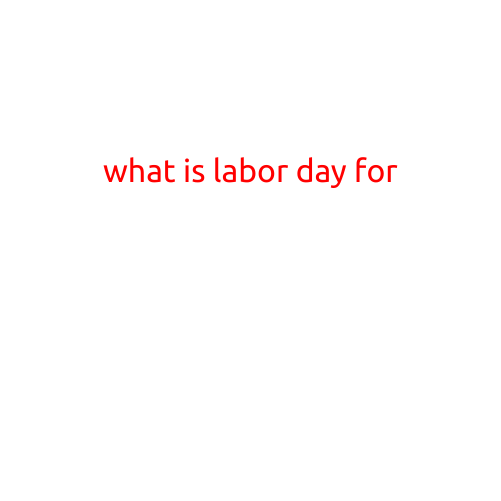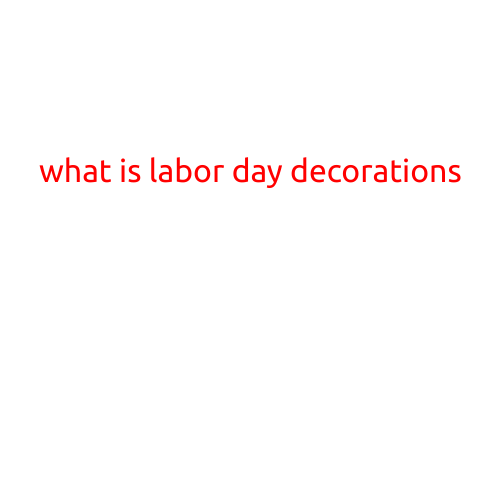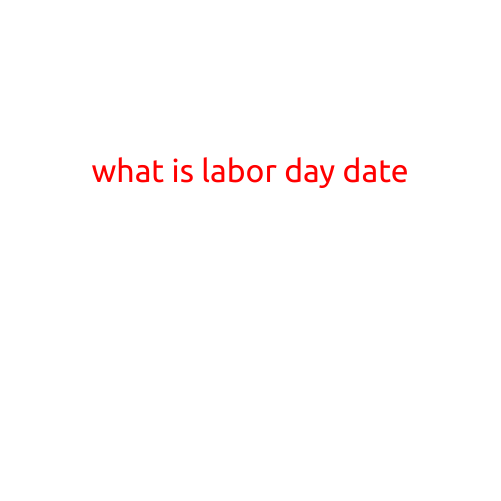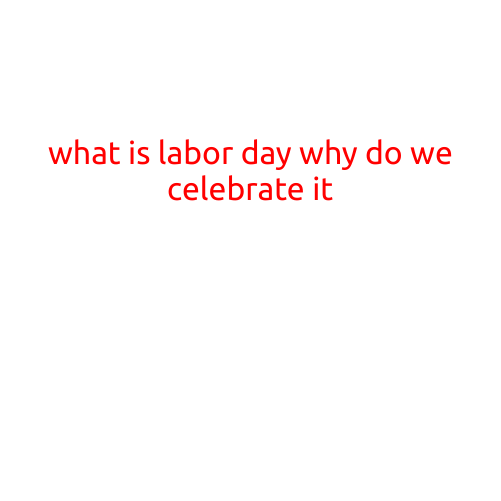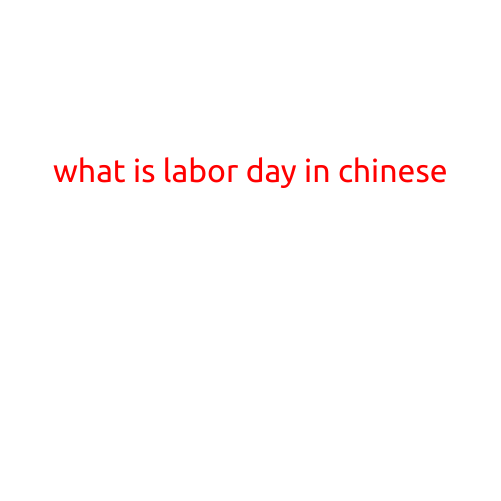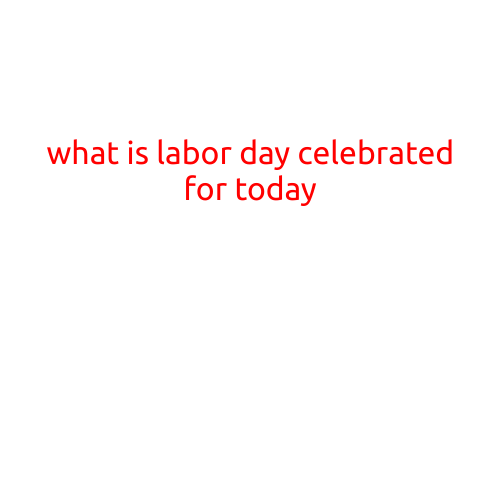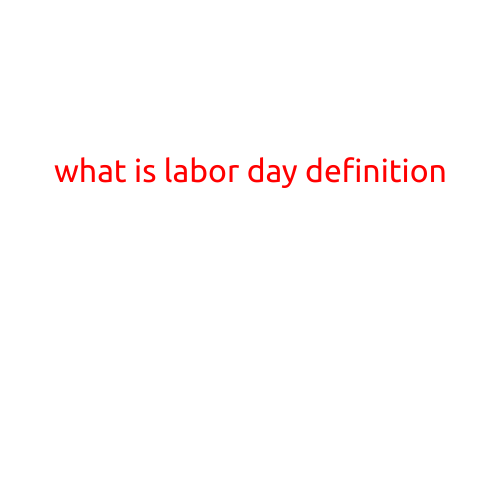
What is Labor Day Definition?
Labor Day is a federal holiday in the United States that is celebrated on the first Monday in September. It is a day to recognize and honor the contributions and achievements of American workers, and is often referred to as the “unofficial end of summer”.
But what is Labor Day, exactly? In this article, we’ll delve into the history and definition of Labor Day, as well as its significance and traditions.
Origins of Labor Day
The concept of Labor Day was first proposed by Mathew Maguire, a labor union leader, in 1882. The idea was to create a day to recognize the struggles and sacrifices of American workers, who had been fighting for better working conditions, higher wages, and shorter working hours.
The first Labor Day was celebrated on September 5, 1882, in New York City, with a parade and speeches by labor leaders. The holiday gained popularity over the next few decades, and in 1894, Congress passed a law making the first Monday in September a federal holiday.
Definition of Labor Day
So, what is Labor Day, exactly? According to the U.S. Department of Labor, Labor Day is “a national tribute to the contributions and achievements of American workers”. It is a day to recognize the hard work and dedication of workers, and to acknowledge the progress that has been made in improving working conditions and promoting workers’ rights.
Significance of Labor Day
Labor Day has several key significance:
- Celebration of American workers: Labor Day is a day to celebrate the achievements and contributions of American workers, who have played a crucial role in shaping the country’s economy and society.
- End of summer: Labor Day is often referred to as the “unofficial end of summer”, marking the beginning of the back-to-school season and the end of long summers.
- Family and friends: Labor Day is a popular day for family gatherings, barbecues, and picnics, and is often seen as a chance to spend time with loved ones before the busy fall schedules begin.
- Traditions: Labor Day has several traditional activities, including parades, fireworks, and sporting events.
Traditions of Labor Day
So, what are some of the traditions associated with Labor Day? Here are a few:
- Parades: Many cities and towns hold Labor Day parades, often featuring floats, marching bands, and labor union members.
- Fireworks: Labor Day is often marked by fireworks displays, which can range from simple displays to elaborate shows.
- Cookouts and picnics: Labor Day is a popular day for outdoor gatherings, with many families and friends coming together for cookouts and picnics.
- Sports: Labor Day is often associated with sports events, such as MLB games and college football games.
Conclusion
In conclusion, Labor Day is a federal holiday that is celebrated on the first Monday in September to recognize and honor the contributions and achievements of American workers. With its origins dating back to 1882, Labor Day has become an important tradition in the United States, with several significant and fun activities associated with it. So, whether you’re celebrating with family and friends or simply taking a well-deserved break, Labor Day is a special day that is worth acknowledging.
